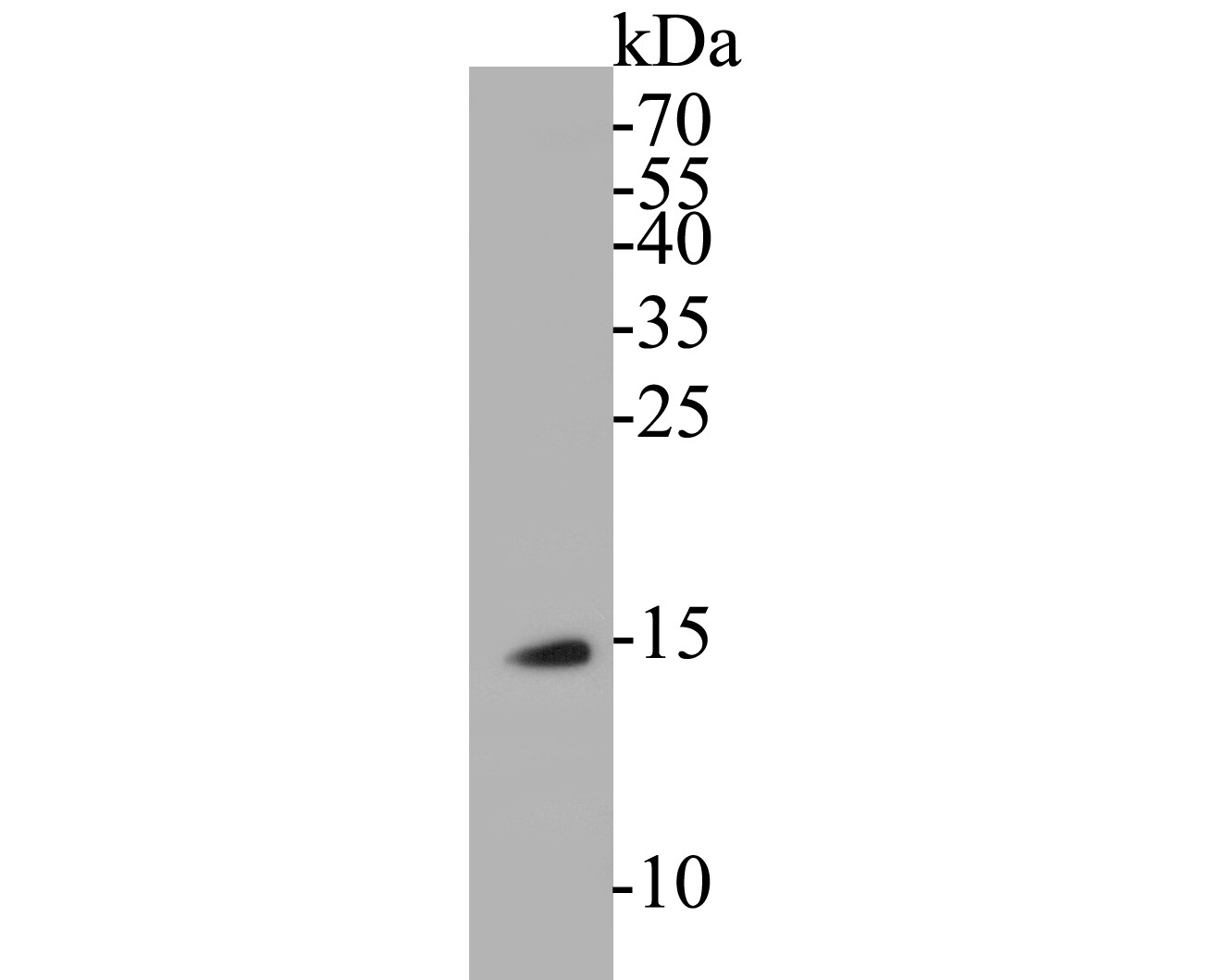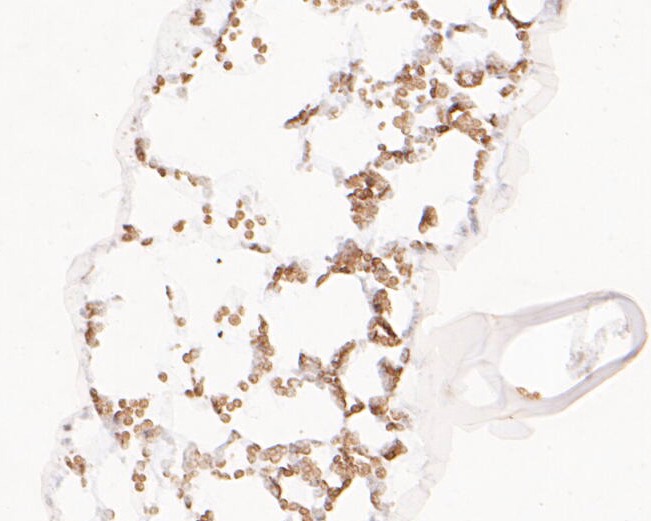BLOS1 Rabbit Polyclonal Antibody

cat.: ER1901-35
| Product Type: | Rabbit polyclonal IgG, primary antibodies |
|---|---|
| Species reactivity: | Rice, Arabidopsis thaliana |
| Applications: | WB, IHC-P |
| Clonality: | Polyclonal |
| Form: | Liquid |
| Storage condition: | Shipped at 4℃. Store at +4℃ short term (1-2 weeks). It is recommended to aliquot into single-use upon delivery. Store at -20℃ long term. |
| Storage buffer: | 1*PBS (pH7.4), 0.2% BSA, 50% Glycerol. Preservative: 0.05% Sodium Azide. |
| Concentration: | 1ug/ul |
| Purification: | Immunogen affinity purified. |
| Molecular weight: | Predicted band size: 17 kDa |
| Isotype: | IgG |
| Immunogen: | Synthetic peptide within thaliana BLOS1 aa 26-75 / 152. |
| Positive control: | Rice tissue lysates, A. thaliana tissue. |
| Subcellular location: | Endosome, cytoplasm. |
| Recommended Dilutions:
WB IHC-P |
1:500-1:2,000 1:50-1:200 |
| Uniprot #: | SwissProt: O22929 ARATH |
| Alternative names: | Biogenesis of lysosome-related organelles complex 1 subunit 1 BL1S1_HUMAN BLOC-1 subunit 1 Bloc1s1 BLOS1 GCN5-like protein 1 GCN5L1 Protein RT14 RT14 |
Images

|
Fig1: Western blot analysis of BLOS1 on rice tissue lysates. Proteins were transferred to a PVDF membrane and blocked with 5% BSA in PBS for 1 hour at room temperature. The primary antibody (ER1901-35, 1/500) was used in 5% BSA at room temperature for 2 hours. Goat Anti-Rabbit IgG - HRP Secondary Antibody (HA1001) at 1:5,000 dilution was used for 1 hour at room temperature. |

|
Fig2: Immunohistochemical analysis of paraffin-embedded A. thaliana tissue using anti-BLOS1 antibody. The section was pre-treated using heat mediated antigen retrieval with Tris-EDTA buffer (pH 8.0-8.4) for 20 minutes.The tissues were blocked in 5% BSA for 30 minutes at room temperature, washed with ddH2O and PBS, and then probed with the primary antibody (ER1901-35, 1/50) for 30 minutes at room temperature. The detection was performed using an HRP conjugated compact polymer system. DAB was used as the chromogen. Tissues were counterstained with hematoxylin and mounted with DPX. |
Note: All products are “FOR RESEARCH USE ONLY AND ARE NOT INTENDED FOR DIAGNOSTIC OR THERAPEUTIC USE”.